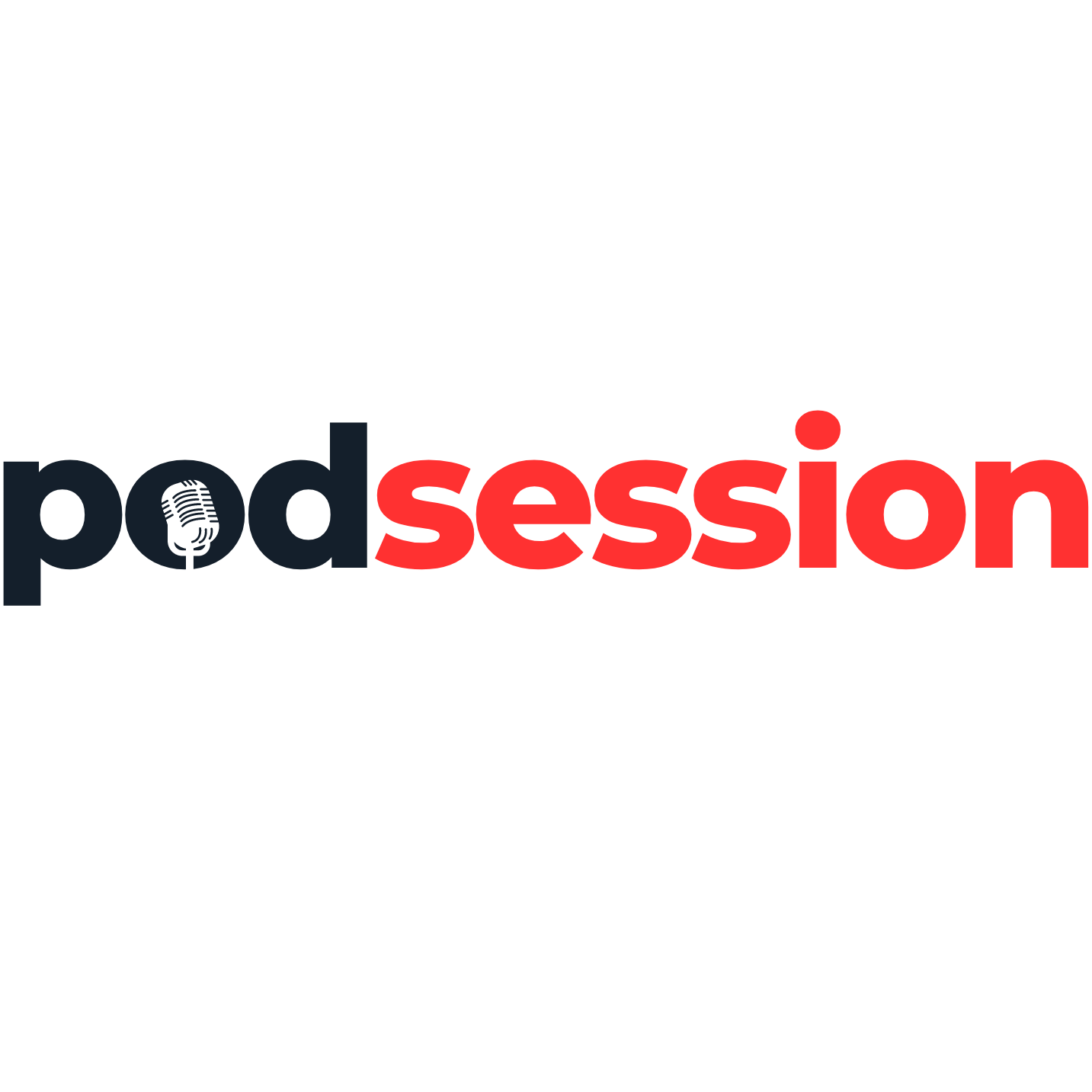
2.7K
Downloads
234
Episodes
🎙️ Welcome to Podsession, your daily dose of trending products, hot topics, and the latest news! Join us as we dive into what’s buzzing today—from the coolest gadgets and must-have products to the hottest conversations and breaking headlines. Stay updated and entertained with our expert takes and engaging discussions. Whether you’re a news junkie or just looking for what’s new, Podsession has something for everyone. Don’t miss out—hit that subscribe button and stay in the loop every day!
Episodes

Friday Mar 14, 2025
We Buy Houses in Galveston, TX - SellThatHouseToMe.com
Friday Mar 14, 2025
Friday Mar 14, 2025
View our article at https://sellthathousetome.com/cash-for-houses-in-galveston-tx-get-a-no-obligation-offer/
Are you looking to sell your house fast for cash in Galveston, TX? Look no further! Sell That House to Me offers a simple, hassle-free way to get a fair cash offer for your Galveston home today. No waiting, no hidden costs, just a straightforward cash deal.
Galveston, a historic island city in Galveston County, has a unique real estate market. While its beachy charm east of Houston attracts tourists, selling through traditional methods can sometimes be challenging. The median home price is around $430,000, and homes might stay on the market for 45-65 days (early 2025 estimates). If you're ready to flee the flood or simply want a quick and easy sale, Sell That House to Me unleashes cash like a squall.
We provide a straightforward process for property owners, securing residences across the country and eliminating conventional market obstacles. You'll receive a reasonable cash sum customized to your house's present quality. This means no need for fix-up costs or repairs. We eliminate commissions, final costs, and drawn-out schedules, often completing sales in just 7 business days.
Sell That House to Me assists clients in various situations, including:
- Contending with foreclosure
- Navigating marital transitions
- Facing rapid relocations
- Having a preference for a low-effort divestment
- Dealing with an inherited house
Our process is designed for quick results and minimal effort. Simply reach out to Sell That House to Me, and we'll efficiently review your home, either through a short visit or based on the information you provide. We then deliver a transparent, no-obligation cash offer, determined by your home's state and local market factors, with no negotiation required. Upon your acceptance, we bypass financing delays, transferring funds to you rapidly while handling all the paperwork.
We pay cash for houses not only in Galveston but also in nearby areas like La Marque, Texas City, Houston, Dickinson, Hitchcock, Santa Fe, and Jamaica Beach. Whether your property is in the East End, Pirates Beach, Indian Beach, along Seawall Boulevard, near the Strand, or off 61st Street, we'll sweep your home with a cash offer in Galveston, TX!.
Here's what our clients are saying:
- “East Ends storms battered my nerves. They crashed with cash, out before the next surge!” – Cal S.
- “Pirates Beach was a tourist trap. Their offer thundered in, cash in 7—no seawall slog!” – Eve P.
- “Indian Beach was a sandy wreck. They took it raw, cash roared fast—island life sunk!” – Jo T.
Frequently Asked Questions:
- How fast can I sell in Galveston? Offer in 24 hours, close in 7 business days.
- Is the offer fair? Our offers ride Galveston's wild wave, considering the local market.
- Do I need to make repairs? Nope, we grab it as-is, even if it's drenched or near Seawall.
- Can you help with foreclosure? We lift Galveston folks quick.
- I inherited a run-down property. Can you help? Ditch that gulf heap by the Strand fast.
- Going through a divorce? Cash your Galveston split, no splash.
- Moving soon? We’ll buy before you sail to Houston!
At Sell That House to Me, we are dedicated to providing a fast and fair way for you to sell your home for cash in Galveston and the surrounding Galveston County areas.
Ready to sell your Galveston home without the hassle? Submit your information today and receive your no-obligation cash offer!
Learn More About Galveston and check out our related posts for more information on selling your house fast in other areas.
#CashForHousesGalveston #SellMyHouseFastGalveston #GalvestonRealEstate #WeBuyHousesGalveston #NoRepairsNeeded #NoFees #FastCashOffer #SellHouseAsIs #StopForeclosureGalveston #InheritedHouseHelp #DivorceSaleGalveston #RelocationSale #SellThatHouseToMe #GalvestonTXRealEstate #HoustonRealEstate #LaMarqueTX #TexasCityTX #DickinsonTX #HitchcockTX #SantaFeTX #JamaicaBeachTX #GalvestonCountyHomes #CashOfferForHome #QuickHomeSale #EasyHomeSale

Friday Mar 14, 2025
We Buy Houses in Helotes, TX - SellThatHouseToMe.com
Friday Mar 14, 2025
Friday Mar 14, 2025
View our artcle at https://sellthathousetome.com/get-cash-for-your-house-in-la-marque-tx-quick-close/
Are you looking to sell your house fast for cash in Helotes, TX? Look no further! Sell That House to Me offers a quick and hassle-free way to sell your home without the stress of traditional real estate processes.
Tired of waiting months to sell your house in Helotes' charming but sometimes slow market? With median prices around $450,000 and homes averaging 50-70 days on the market (early 2025 trends), selling the conventional way can take time. Sell That House to Me provides fair cash offers with flexible closing timelines, allowing you to cash out fast – sometimes in as little as 7 days.
Why choose Sell That House to Me?
- We buy houses for cash in Helotes, TX and surrounding areas.
- Get a fair cash offer quickly after a timely analysis of your home. This analysis can be based on a quick inspection or your description.
- No need for repairs or fix-up costs. We buy houses in their present condition.
- No realtor commissions or closing fees. This means more money in your pocket!
- Fast closing – as quick as 7 days. Say goodbye to lengthy timelines and mortgage-related waits.
- Hassle-free home transfer. We handle all administrative tasks.
- Custom support tailored to your needs.
We help homeowners in various situations:
- Foreclosure: Stop foreclosure quickly by selling to us.
- Divorce proceedings: Cash out your Helotes home fast and move forward.
- Swift moves and relocations: Sell your house before you relocate, even if you're moving to San Antonio.
- Inherited homes: Sell that inherited property in Old Town Helotes quickly and easily.
- Empty or fixer-upper properties: We'll take them as-is, even homes near Cedar Springs needing work.
- Anyone wanting a hassle-free home sale.
Our simple process:
- Submit your information about your Helotes home.
- Our team conducts a timely analysis of your property based on a quick inspection or your description.
- You receive an honest, no-strings cash proposal, based on your home’s status and nearby market insights, without any bargaining.
- Accept our fair offer.
- We avoid mortgage-related waits, provide funds fast, and handle all administrative tasks, allowing for a closing in as few as 7 days.
- Sell your house on your terms.
We buy houses in Helotes and the surrounding areas, including:
- San Antonio
- Fair Oaks Ranch
- Boerne
- Leon Valley
- Shavano Park
- Grey Forest
- Castroville
- All over Bexar County
What our clients say about selling their house fast to us:
- “My Cedar Springs home was too quiet post-kids. They offered cash fast, closed before the next Floores show!” – Mike S.
- “Sonoma Ranch job moved me out. Their offer was quick, cash in 8 days – no western commute!” – Tara P.
- “Grey Forest fixer-upper sat empty. They took it rough, cash hit fast – hill-country peace!” – Jen R.
Frequently Asked Questions:
- How fast can I sell in Helotes? Offer in 24 hours, close in 7 days.
- Will I get a fair price? Yes, our offers are tied to Helotes’ growing market.
- Do I need to make repairs? None! We buy as-is, even homes near Cedar Springs needing work.
- Can you help with foreclosure? Yes, we help Helotes homeowners fast.
- I inherited a home, can you help? Yes, you can sell that old property by Old Town Helotes quick.
- Going through a divorce? We can cash out your Helotes home fast, with no hassle.
- Relocating? We’ll buy before you move to San Antonio!
Ready to get a fast, fair cash offer for your house in Helotes, TX? Submit your information today!
Learn more about Helotes: Settled in the 1850s in Bexar County, Helotes is now a quaint exurb northwest of San Antonio, known for its western flair. Its market simmers with western charm, and popular areas include Cedar Springs, Sonoma Ranch, and Grey Forest. Picture the rustic charm of Old Town Helotes, the twangy tunes of Floores Country Store, or the shady calm of Helotes Creek.
Don't delay, experience a seamless and quick home selling process with Sell That House to Me!
#SellMyHouseFastHelotes #CashForHousesHelotes #WeBuyHousesHelotes #HelotesRealEstate #QuickHomeSaleHelotes #NoRepairsNeededHelotes #NoFeesHelotes #SellHouseAsIsHelotes #StopForeclosureHelotes #InheritedHouseHelotes #DivorceSaleHelotes #RelocatingHelotes #SellHomeFastSanAntonio #BexarCountyRealEstate #SellThatHouseToMe #FlooresCountryStore #OldTownHelotes #CedarSpringsHelotes #SonomaRanchHelotes #GreyForestHelotes

Friday Mar 14, 2025
We Buy Houses in La Marque, TX - SellThatHouseToMe.com
Friday Mar 14, 2025
Friday Mar 14, 2025
Read our article at https://sellthathousetome.com/get-cash-for-your-house-in-la-marque-tx-quick-close/
Are you looking to sell your house fast for cash in La Marque, TX? Look no further! This video dives into how Sell That House to Me can provide you with a hassle-free and quick home selling experience right here in La Marque.
La Marque, a town with a rich history dating back to the 1860s in Galveston County, has grown alongside railroads and refineries. This low-key gulf nook, located east of Houston, offers a unique charm with its bayous and hardworking community. However, if you're a La Marque homeowner looking for a quick exit, Sell That House to Me is ready to fire cash your way.
Navigating La Marque's real estate market can sometimes feel like wading through a bayou haze. While the market has a gulf-edge charm with median prices around $385,000 (as of early 2025), homes can take 50-70 days to sell. If you don't have the time for that, or want to avoid the traditional selling process, Sell That House to Me zaps in with cash, allowing you to move on quickly without the usual delays.
We understand that life happens. Whether you're dealing with foreclosure, divorce proceedings, a swift move, or have inherited a property you need to sell quickly, Sell That House to Me offers a simplified solution for a hassle-free home transfer. We buy houses directly from sellers in every U.S. region, including La Marque, TX.
Here's how our simplified process works:
- Connect With Us: Simply share the details of your La Marque property.
- Timely Analysis: Our team conducts a quick analysis of your residence, either through a brief inspection or based on your description.
- Transparent Cash Offer: We'll deliver a no-obligation cash offer that is determined by your home’s current condition and local market factors. No negotiation is required.
- Fast Closing: If you agree to our offer, we bypass lender delays and deliver cash promptly. We also manage all the necessary paperwork for you.
- Close in Days: We frequently complete sales in just 7 business days.
Why choose Sell That House to Me?
- We Pay Cash: Say goodbye to the uncertainties of traditional financing. We provide a reasonable cash sum for your house based on its present quality.
- No Fix-Up Costs: You don't need to worry about spending time and money on repairs. We buy your house as-is, even if it’s a "hole".
- No Commissions or Final Costs: We eliminate the burden of agent commissions and other closing costs.
- Simplified Process: Our approach prioritizes speed and simplicity, offering personalized care throughout the process.
- Solutions for Various Situations: We support homeowners facing foreclosure, divorce, swift moves, or those who simply want a hassle-free sale.
We buy houses not just in La Marque, but also in the surrounding areas, including:
- Texas City
- Houston
- Galveston
- Bacliff
- Hitchcock
- Santa Fe
- Dickinson
- Omega Bay
- Delany Cove
- Gulfview
- Highland Bayou area
Whether your property is near the "muddy calm" of Highland Bayou, has a view of the cranes off FM 519, or is nestled in the quiet by Carbide Park, we are ready to give you a cash offer. Even if your house has seen better days – we buy it "swampy," even near Highland Bayou.
Hear what our satisfied sellers have to say:
- “Omega Bays damp got me down. They zapped cash in quick, out before the next flood!” – Sara T.
- “Delany Coves commute fried me. Their offer sparked fast, cash in 7 – no bayou burn!” – Mike R.
- “Gulfview was a refinery relic. They took it rough, cash hit quick – gulf zap done!” – Jen P.
Frequently Asked Questions about selling your house fast in La Marque, TX:
- How fast can I sell in La Marque? You can receive an offer in as little as 24 hours and close in just 7 days.
- Will I get a fair offer? Our offers align with La Marque’s local market conditions.
- Do I need to make repairs? No! We buy your house in its current condition.
- Can you help with foreclosure? Yes, we can help La Marque residents facing foreclosure to sell quickly.
- What if I inherited a house I don’t want? We can quickly buy your inherited property.
- What about selling during a divorce? We offer a fast way to cash out your La Marque property during a divorce.
- I’m moving soon. Can you buy my house quickly? Absolutely! We can buy your house before you move to Houston or elsewhere.
Ready to zap out of your La Marque property quickly for cash? Contact Sell That House to Me today for a fast and fair quote!
Learn more about Sell That House to Me and how we can help you sell your house fast for cash in La Marque, TX, and the surrounding Galveston County areas.
Don't delay – get your no-obligation cash offer today!
#SellMyHouseFastLaMarque #CashForHousesLaMarque #WeBuyHousesLaMarque #QuickCloseLaMarque #NoRepairsNeeded #NoFeesRealEstate #SellHomeFastTexas #GalvestonCountyRealEstate #StopForeclosureTexas #DivorcePropertySale #InheritedHouseHelp #SellHouseAsIs #HassleFreeHomeSale #SellThatHouseToMe #LaMarqueTXRealEstate

Friday Mar 14, 2025
We Buy Houses in Lake Jackson, TX - SellThatHouseToMe.com
Friday Mar 14, 2025
Friday Mar 14, 2025
View our article at https://sellthathousetome.com/get-cash-for-your-house-in-lake-jackson-tx-quick-close/
Looking to sell your house fast for cash in Lake Jackson, Texas? Sell That House to Me offers a streamlined and hassle-free solution to homeowners looking for a quick and easy way to sell their property. Forget about lengthy timelines, costly repairs, and agent commissions. We buy houses in Lake Jackson and the surrounding areas for cash, providing you with a fair offer and a closing in as little as 7 days.
Why Choose Sell That House to Me?
- Fast Cash Offers: We provide straightforward, unconditional cash bids based on your home's as-is value and regional data. Say goodbye to the uncertainty of traditional sales and receive a cash offer quickly, often within 24 hours of contacting us.
- No Repairs Necessary: Don't worry about fixing up your property. We buy houses in any condition, even "sweaty" or "damp dens". Whether your house needs significant work or just a little TLC, we'll take it off your hands.
- Quick Closing: We understand that sometimes you need to sell your house fast. Our expedited process allows us to finalize the sale and get you cash in your hands in as few as 7 days.
- No Fees or Commissions: Unlike traditional real estate agents, we don't charge any realtor commissions or closing fees. The cash offer you receive is the amount you'll walk away with.
- Effortless Process: We handle all the paperwork and complexities involved in selling a house, making the process seamless and stress-free for you.
Who Do We Help?
Sell That House to Me assists homeowners in various situations, including:
- Facing Foreclosure: We can provide a fast solution to help you avoid the foreclosure process.
- Dealing with Divorce: We offer a quick and easy way to liquidate your property during a divorce.
- Moving Quickly: If you need to relocate for a new job or other reasons, we can buy your house on your timeline.
- Inherited Houses: Selling an inherited property can be overwhelming. We can help you shed that "gulf heap" quickly and easily.
- Desiring an Effortless Property Sale: If you simply want a convenient and fast way to sell your house without the hassles of listing and showing, we are here to help.
Our Simple Process:
- Reach Out: Contact Sell That House to Me by requesting an offer. You can provide us with information about your home through a short visit or by supplying the details remotely.
- Receive a Cash Offer: We will efficiently review your home and provide you with a straightforward, unconditional cash bid based on its quality and regional data. We skip the back-and-forth negotiations.
- Get Paid Fast: Once you accept our offer, we bypass financing delays and rapidly transfer funds to you. We take care of all the necessary paperwork.
We Buy Houses in Lake Jackson and Surrounding Areas:
We proudly serve homeowners in Lake Jackson, TX, and the surrounding communities, including:
- Angleton
- Houston
- Freeport
- Clute
- Richwood
- Alvin
- Pearland
- All over Brazoria County
Whether your home is in Oyster Creek, Plantation Village, Timbercreek, or any other neighborhood in the Lake Jackson area, we are interested in making you a cash offer.
What Our Customers Say:
- "Oyster Creeks moss got me down. They flooded cash quick, out before the next steam!" – Ray S.
- "Plantation Villages heat fried me. Their offer poured in, cash in 7no creek crawl!" – Kim T.
- "Timbercreek was a plant workers flop. They took it raw, cash splashed fastgulf glow gone!" – Pat R.
Don't let the "steam" of the Lake Jackson real estate market slow you down. If you're ready to sell your house fast for cash, contact Sell That House to Me today for a fast and fair quote! Visit our website or give us a call to learn more.
Learn More About Lake Jackson:
Lake Jackson, located in Brazoria County south of Houston, has a unique history rooted in the development of chemical plants in the 1940s. Today, it's known for its humid climate, lakes, and leafy charm. While the median home price is around $405,000, and homes might take 45-65 days to sell in early 2025, we offer a much faster alternative.
Related Topics:
Interested in selling other types of properties quickly for cash? Check out our trending posts on selling inherited houses and fast home buying in areas like Anna, TX, Kingsbury, SC, and more.
Contact Us Today!
Ready to experience a hassle-free home selling process in Lake Jackson? Reach out to Sell That House to Me and get your cash offer today!
#SellMyHouseFast #LakeJacksonTX #CashForHouses #QuickClose #NoRepairs #NoFees #BrazoriaCountyRealEstate #StopForeclosure #SellInheritedHouse #DivorceSale #MovingSale #SellThatHouseToMe

Friday Mar 14, 2025
We Buy Houses in Round Rock, TX - SellThatHouseToMe.com
Friday Mar 14, 2025
Friday Mar 14, 2025
View our article at https://sellthathousetome.com/we-buy-houses-in-round-rock-tx-sell-fast-for-cash/
Looking to sell your house fast for cash in Round Rock, TX, or the surrounding areas? Sell That House to Me offers a streamlined and hassle-free solution! We buy houses in Round Rock, as well as nearby Pflugerville, Georgetown, Leander, Cedar Park, Hutto, Austin, and Brushy Creek, and throughout Williamson County. If you're looking for a quick and convenient way to sell your home without the traditional real estate headaches, you've come to the right place!
Why choose Sell That House to Me?
- Fast Cash Offers: We provide fair cash offers for your home, allowing you to move forward quickly.
- Flexible Closing Timelines: We work on your terms, with the possibility of closing in as few as 7 days.
- No Repairs or Renovations Needed: We buy houses as-is, in any condition. Forget about costly repairs or time-consuming renovations.
- No Realtor Commissions or Fees: Selling to us means no agent fees or hidden closing costs, putting more money in your pocket.
- Simplified Process: Our approach is designed to be easy and stress-free for homeowners.
How our process works:
- Engage with Us: Simply submit your property information.
- Swift Property Appraisal: We'll quickly appraise your property, either through an in-person check or based on the specifics you share.
- Honest Cash Proposal: We'll present you with a fair, no-strings cash offer, based on your home's current condition and nearby market insights. We avoid any haggling.
- Quick Closing: Once you accept our offer, we handle the paperwork and ensure a fast cash disbursement, eliminating loan obstacles.
Who is Sell That House to Me for?
Our services are ideal for homeowners in various situations, including:
- Managing Foreclosure: We can help Round Rock homeowners facing foreclosure find a fast solution.
- Navigating Divorce: We offer a hassle-free way to cash out your Round Rock home quickly during a divorce.
- Urgent Relocation: If you need to relocate urgently, we can buy your house before you move.
- Inherited Property: We provide a straightforward way to sell an inherited house, even near areas like Old Settlers Park.
- Simply Seeking a Convenient Exit: If you want to avoid the lengthy and often complicated traditional selling process, we offer a convenient alternative.
Understanding the Round Rock Real Estate Market:
Round Rock's real estate market is described as a "tech-fueled furnace" with median prices around $445,000 and homes averaging 45-65 days on the market (early 2025 trends). The presence of companies like Dell and various startups drives demand. While the market is hot, listings can sometimes stall. Sell That House to Me flips the script by offering rapid cash buys, allowing you to cash out quickly without the need for a realtor.
We buy houses in various Round Rock hubs, including Teravista, Forest Creek, and Brushy Creek, areas popular with tech professionals and families. Whether your property is near the sprawling fields of Old Settlers Park, the Round Rock Premium Outlets, or the Dell Diamond, we are ready to make you a fast cash offer.
What Our Customers Say:
- Carlos R. (Teravista): "My Teravista flip flopped—too many fixes. They handed me cash in a day, done before the next Dell paycheck!"
- Jen L. (Forest Creek): "Divorce hit, and my Forest Creek home had to go. They bought it rough, cash landed in 9 days—no drama!"
- Ed P. (Brushy Creek): "Retiring from Brushy Creek, I didn’t want the hassle. Their offer was spot-on, closed fast before spring training!"
Frequently Asked Questions:
- How fast can I sell in Round Rock? Offer in 24 hours, close in 7 days.
- Will I get a fair price? Yes, our offers are tied to Round Rock’s hot market.
- Do I need to make repairs? None – we buy as-is, even homes needing work.
- Can you help with foreclosure? Yes, we help Round Rock homeowners fast.
- I inherited a home, can you buy it? Yes, sell that old property quickly.
- I'm going through a divorce, can you help? Yes, cash out your Round Rock home fast, no hassle.
- I'm relocating, can you buy my house before I move to Austin? Yes, we’ll buy before you move!
Beyond Round Rock:
While our focus here is on Round Rock, we also buy houses for cash in other locations, as seen in our trending posts, including Anna, TX, Kingsbury, Rock Hill SC, Conway SC, Goodyear AZ, Buckeye AZ, Dacula GA, McDonough GA, and Nampa ID. We also serve areas like Lakeway, Forney, Cedar Park, Spicewood, Marble Falls, Spring Branch, Angleton, Heath, Fate, and Missouri City, TX.
Ready to sell your house fast for cash in Round Rock, TX? Submit your information today and receive a fair, no-obligation offer! Let Sell That House to Me provide you with a rapid resolution, convenience, and the individual attention you deserve!
Learn More About Round Rock:
Related Posts: Check out our news section for more information on selling your house fast for cash in various locations.
Contact Us Today! Skip the stress and uncertainty of the traditional real estate market. Choose Sell That House to Me for a quick and easy cash sale of your Round Rock home!
#SellHouseFast #CashForHouses #RoundRockTX #TexasRealEstate #WeBuyHouses #NoRepairsNeeded #NoFees #FastClosing #SellMyHouseQuick #ForeclosureHelp #DivorceSale #Relocation #InheritedProperty #Teravista #ForestCreek #BrushyCreek #WilliamsonCounty #AustinRealEstate #RealEstateInvestor #SellThatHouseToMe

Friday Mar 14, 2025
We Buy Houses in Rowlett, TX - SellThatHouseToMe.com
Friday Mar 14, 2025
Friday Mar 14, 2025
View our article at https://sellthathousetome.com/we-buy-houses-in-rowlett-tx-sell-fast-for-cash/
Are you looking to sell your house fast for cash in Rowlett, TX? Look no further! Sell That House to Me offers a hassle-free and speedy solution for homeowners wanting to cash out without the traditional real estate headaches.
We buy houses in Rowlett, TX, in any condition. Whether your home needs repairs, is an inherited property, or you're facing foreclosure or divorce, we can help. Forget about lengthy listings, open houses, and costly renovations – we provide a fair cash offer and a smooth, efficient process.
Rowlett, a charming lakeside suburb east of Dallas, offers a unique real estate market. With median home prices around $425,000 and an average of 45-65 days on the market (early 2025 trends), selling through traditional channels can sometimes take time. Sell That House to Me offers a quick alternative, allowing you to cash out fast without the delays.
We understand the appeal of Rowlett's lakeside living, with beautiful areas like Waterview, Lakeside Village, and Bayview Estates near Lake Ray Hubbard. If you're ready to move on from your property in these or any other Rowlett neighborhood, we'll make you a cash offer.
How does it work? Our process is simple and straightforward:
- Request an offer: Contact us with information about your Rowlett home.
- Timely analysis: Our team will conduct a quick analysis of your property, either through a brief inspection or your description.
- Clear, commitment-free offer: We'll present you with a fair cash offer based on your home's condition and local market trends, with no haggling.
- Accept and get paid fast: Upon your approval, we bypass mortgage-related delays and provide funds quickly, handling all the paperwork. We often complete sales in just 7 business days.
Why choose Sell That House to Me?
- We pay cash for houses: Eliminate the uncertainty of buyer financing.
- No repairs or renovations needed: Sell your house as-is, no matter the condition.
- No fees or commissions: Keep more money in your pocket.
- Fast closing: Sell your house on your timeline, often within 7 business days.
- Hassle-free process: We handle all the administrative tasks.
- We buy in various situations: Whether you're facing foreclosure, going through a divorce, dealing with an inherited property, or relocating, we can provide a solution.
We proudly serve Rowlett and the surrounding areas, including the lake charm of Rockwall, the suburban buzz of Garland, the quiet vibe of Sachse, and even further into Wylie, Heath, Fate, and Dallas. No matter where your house is in the region, we're ready to make a cash offer.
Don't just take our word for it. Here's what our satisfied sellers in Rowlett are saying:
- "My Waterview home was a lake-weekend chore. They offered cash quick, closed before the next boat trip!" – Tara S.
- "Lakeside Village job moved me out. Their offer was fast, cash in 8 days—no lake commute!" – Mike R.
- "Bayview Estates fixer-upper sat empty. They took it rough, cash hit fast—lakeside freedom!" – Jen P.
Are you wondering how fast you can sell in Rowlett? We can provide an offer within 24 hours and close in as little as 7 days. Concerned about getting a fair price? Our offers are tied to Rowlett's growing market. Don't worry about repairs – we buy as-is, even homes near Waterview that need work. If you're facing foreclosure, we can help Rowlett homeowners quickly. Have you inherited a home by Lake Ray Hubbard? Sell that old property fast with us. Going through a divorce? Cash out your Rowlett home quickly and without the hassle. Relocating? We'll buy your house before you move to Rockwall!.
Sell That House to Me is a trusted cash home buyer in Rowlett, TX, and all over Dallas County. Get your fast, fair, no-obligation quote today!
Related trending posts you might find interesting:
- Sell Your House Fast For Cash in Anna, TX
- Sell Your Kingsbury Home Fast | No Repairs, No Fees
- Cash for Your Inherited House: Selling an Inherited House the Easy Way
- Sell My House Fast Rock Hill SC: Cash Out Before the Boom Ties You Up
- We Buy Houses in Lakeway, TX
- Fast Home Buyers in Forney, TX
- We Buy Houses in Cedar Park, TX
- Fast Home Buyers in Spicewood, TX
- Sell Your Marble Falls Home Fast
- We Buy Houses in Spring Branch, TX
- Fast Home Buyers in Angleton, TX
- We Buy Houses in Heath, TX
- Cash for Houses in Fate, TX
- Fast Home Buyers in Missouri City, TX
Ready to sell your Rowlett house fast for cash? Contact Sell That House to Me today!
#SellMyHouseFast #RowlettTX #CashForHouses #DallasRealEstate #LakeRayHubbard #NoRepairsNeeded #NoFees #FastClosing #SellAsIs #WeBuyHouses #ForeclosureHelp #InheritedHouse #DivorceRealEstate #Relocation

Friday Mar 14, 2025
We Buy Houses in Santa Fe, TX - SellThatHouseToMe.com
Friday Mar 14, 2025
Friday Mar 14, 2025
View our article at https://sellthathousetome.com/cash-for-houses-in-santa-fe-tx-get-a-no-obligation-offer/
Looking to sell your house fast for cash in Santa Fe, Texas? Look no further! Sell That House to Me offers a straightforward and hassle-free way to sell your home quickly without the usual burdens of repairs, agent fees, or lengthy waiting periods. We provide no-obligation cash offers for houses in Santa Fe and the surrounding Galveston County areas.
Do you need to sell your Santa Fe home quickly? We understand that life throws curveballs. Whether you're facing foreclosure, going through a divorce, relocating, or have inherited a property, we can help you achieve a fast and easy sale. We buy houses in any condition – no repairs are needed!. Forget about open houses, negotiations, and the uncertainty of traditional real estate transactions.
Here's how easy it is to sell your house to us:
- Share your property details: Simply provide us with some information about your Santa Fe home.
- Get a no-obligation cash offer: We'll swiftly appraise your property, either through an in-person visit or based on the specifics you share, and present you with a clear, commitment-free cash offer.
- Close in days: If you accept our offer, we can finalize the sale and get you your cash in as little as 7 days. We handle all the administrative tasks, making the process effortless for you.
Why choose Sell That House to Me?
- Fast Cash Offers: We provide reasonable cash sums tailored to your house's present condition.
- No Repairs Needed: Don't worry about fixing up your property; we buy houses as-is.
- No Realtor Commissions or Closing Fees: Save money by avoiding traditional real estate agent commissions and closing costs.
- Quick Closing: We can close in as few as 7 days, providing you with the funds you need quickly.
- Simplified Process: Our approach is direct and uncomplicated, ensuring a smooth and easy sale.
- Solutions for Various Situations: We help homeowners facing foreclosure, divorce, quick moves, and inherited properties.
The Santa Fe real estate market has a median price of around $385,000, and homes can take 50-70 days to sell (early 2025 data). If you need a faster and more certain sale, we offer a convenient alternative.
What sellers are saying about us:
- “Alta Lomas quiet turned lonesome. They rode in with cash, gone before the next dusk!” – Hank P.
- “Overland Trails herd moved on. Their offer spurred quick, cash in 7no plains drag!” – Lila T.
- “Double T was a ranchers bust. They took it rough, cash landed fastopen range off my back!” – Cole R.
We buy houses not just in Santa Fe, but also in neighboring communities like Hitchcock, Alvin, Houston, Friendswood, Texas City, Dickinson, and Arcadia, covering all of Galveston County. Whether your property is in Alta Loma, Overland Trails, or Double T, or anywhere in between, we're ready to make you a cash offer. Even if your property near Runge Park is weathered or you've inherited a "prairie pile" by FM 646, we're interested. If you're moving to Houston and need to sell your Santa Fe home quickly, we can help.
Ready to ride off with cash in hand? Contact Sell That House to Me today for a fast, fair, and no-obligation quote!
Learn more about selling your house fast for cash in Santa Fe, TX:
Related Topics:
- Cash For Houses in Galveston County
- Sell My House Fast Santa Fe TX
- No Repairs Needed Home Sale Santa Fe
- Quick Home Sale Santa Fe TX
- We Buy Houses Santa Fe
- Stop Foreclosure Santa Fe TX
- Sell Inherited House Santa Fe
- Divorce House Sale Santa Fe
- Moving House Sale Santa Fe
#CashForHouses #SellMyHouseFast #SantaFeTX #GalvestonCountyRealEstate #NoRepairsNeeded #QuickClosing #WeBuyHouses #StopForeclosure #InheritedHouse #DivorceSale #MovingSale #RealEstateTexas

Friday Mar 14, 2025
We Buy Houses in Webster, TX - SellThatHouseToMe.com
Friday Mar 14, 2025
Friday Mar 14, 2025
View our article at https://sellthathousetome.com/sell-your-webster-home-fast-no-repairs-no-fees/
Are you looking to sell your house fast for cash in Webster, TX? Look no further! Sell That House to Me offers a stress-free and quick way to get cash for your home without the hassles of traditional real estate sales.
Tired of waiting for months to sell? Avoid costly repairs, agent fees, and lengthy negotiations. We provide fast cash offers for homes in Webster and surrounding areas, allowing you to move on your timeline.
Why choose Sell That House to Me?
- Get a Cash Offer Quickly: We can present you with a fair, no-obligation cash offer after a quick property appraisal, either in person or based on the details you provide.
- Sell As-Is: Don't worry about making any repairs or renovations. We buy houses in any condition.
- No Agent Fees or Commissions: Save thousands of dollars by selling directly to us. We eliminate realtor commissions and hidden costs.
- Fast Closing: We can frequently close in as little as 7 business days, putting cash in your hands quickly.
- Simplified Process: We handle all the paperwork and streamline the entire selling process for you.
- We Buy in Webster and Beyond: We purchase homes not only in Webster, TX, but also in neighboring areas such as Nassau Bay, Houston, League City, Friendswood, Clear Lake Shores, Seabrook, and Pearland.
Our straightforward process:
- Share Your Property Details: Contact us with information about your Webster home.
- Receive a No-Obligation Cash Offer: We'll swiftly appraise your property and provide you with a straightforward, unconditional cash bid.
- Close in Days: If you accept our offer, we'll handle the paperwork and get you paid quickly.
We help homeowners in various situations:
- Facing Foreclosure: We can help you avoid the stress and financial repercussions of foreclosure.
- Going Through Divorce: We offer a fast and easy way to divide assets by buying your house quickly.
- Moving Quickly: If you need to relocate for a new job or other reasons, we can provide a fast solution.
- Dealing with an Inherited Property: Selling an inherited house can be overwhelming. We make the process simple and fast.
- Tired of Property Upkeep: If you own a property that requires too much maintenance, we'll buy it as-is.
Don't just take our word for it:
- "Edgewater got too cramped after the startup folded. They hit me with cash fast, out before the next mall run!” – Jake P.
- “Pipers Meadow wasn’t worth the upkeep. Their offer came sharp, cash in 7 days—no NASA nostalgia!” – Lynn T.
- “Heritage Park divorce left me stuck. They grabbed it as-is, cash split fast—clean break!” – Sam R.
Whether you're in Edgewater, Pipers Meadow, Heritage Park, or anywhere else in Webster or the surrounding Harris County, Sell That House to Me is ready to provide you with a fast and fair cash offer.
Ready to sell your Webster house fast for cash? Contact Sell That House to Me today for your no-obligation cash offer!
#SellMyHouseFast #CashForHouses #WebsterTX #HoustonRealEstate #SellHomeFast #NoRepairsNeeded #NoAgentFees #QuickClose #RealEstate #HarrisCounty #SellThatHouseToMe #ForeclosureHelp #DivorceSale #MovingSale #InheritedHouse
